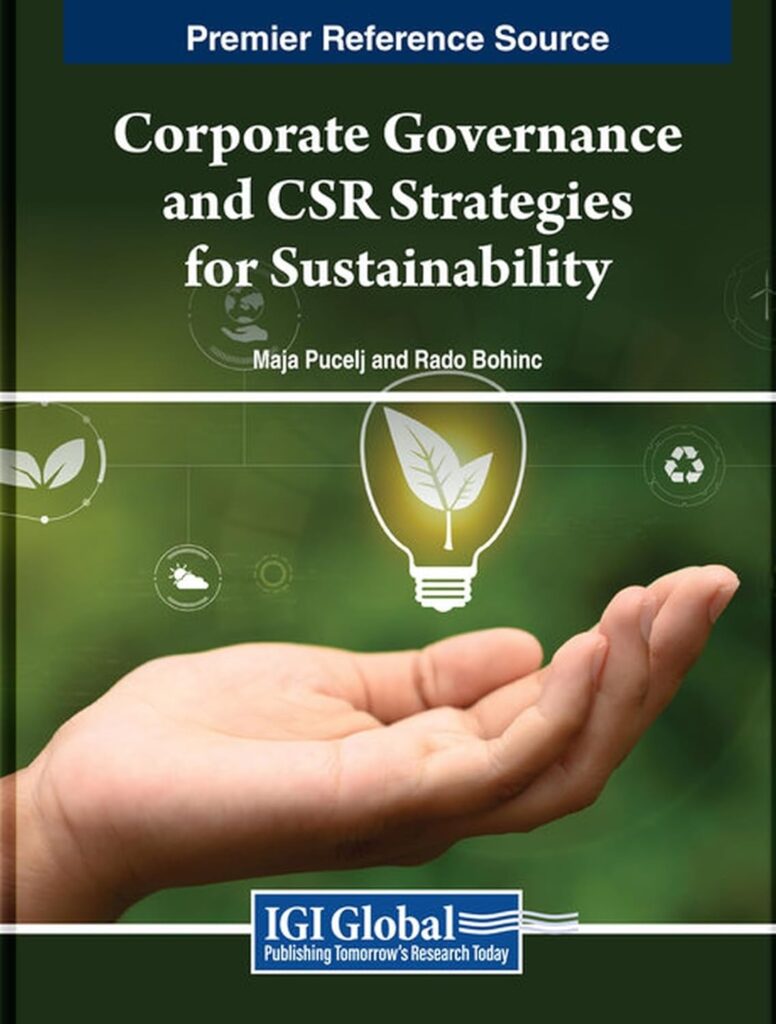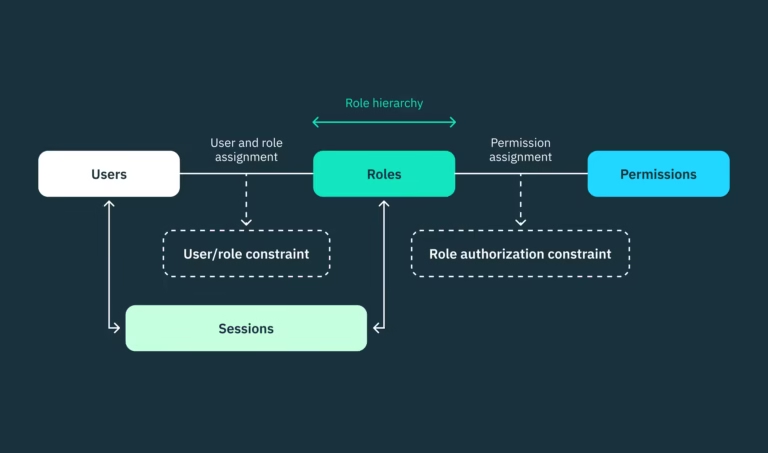
The Importance of Sustainability and CSR in Modern Business
Introduction to Sustainability and CSR
Beyond Profit: The Importance of Sustainability and CSR in Modern Business 🌱
In today’s world, businesses are increasingly recognizing the importance of going beyond profit. In this video, we delve into how sustainability and Corporate Social Responsibility (CSR) are transforming the modern business landscape.
Sustainability in business and Corporate Social Responsibility (CSR) have become pivotal concepts in the modern corporate landscape. These terms signify an evolving recognition that businesses have responsibilities extending beyond profit generation. While sustainability emphasizes the need for environmental stewardship, resource conservation, and maintaining ecological balance, CSR encompasses a broader spectrum that includes ethical business practices, community engagement, and social equity.
Historically, business models were predominantly profit-driven, with minimal regard for environmental and social impacts. However, the latter half of the 20th century saw a paradigm shift. Rising awareness of environmental degradation and social inequities, coupled with regulatory pressures, prompted companies to re-evaluate their roles in society. This shift laid the groundwork for the integration of sustainable business practices and the adoption of CSR initiatives.
The emergence of the Sustainable Development Goals (SDGs) by the United Nations in 2015 further amplified the importance of these concepts. The SDGs provide a universally accepted framework for addressing global challenges such as climate change, poverty, and inequality. Businesses are increasingly aligning their strategies with these goals, recognizing that sustainable development and CSR are not just ethical imperatives but also strategic advantages.
Modern organizations understand that proactive engagement in environmental responsibility and social contribution can lead to significant benefits. From enhancing brand reputation and building consumer trust to attracting top talent and fostering innovation, the advantages of adopting green business models and ethical practices are manifold. Thus, integrating sustainability and CSR into core business strategies is not merely a trend but a necessary evolution in the way companies operate and thrive in today’s interconnected world.
The Business Case for Sustainability
Integrating sustainability into business practices is no longer merely an ethical decision—it is a strategic imperative for the modern enterprise. Businesses today are increasingly recognizing that aligning with sustainable business practices can lead to enhanced long-term financial performance, more effective risk management, and greater innovation.
First and foremost, sustainable businesses often see improved financial performance over time. Implementing eco-friendly business strategies can result in cost savings through energy efficiency, waste reduction, and optimization of resources. For example, multinational corporations like Unilever have reported substantial cost savings and increased profitability by integrating sustainability into their core business model. By reducing their environmental footprint, these companies have also experienced enhanced brand loyalty and customer satisfaction.
Moreover, sustainable business practices and corporate social responsibility (CSR) initiatives contribute significantly to risk management. Companies that proactively manage environmental and social risks are better equipped to navigate regulatory changes, avoid legal penalties, and handle market fluctuations. Patagonia, for instance, has built its business model around environmental responsibility and ethical business practices, positioning itself as a resilient and trustworthy brand even during economic downturns. This emphasis on sustainability mitigates operational risks and fosters a stable, resilient business environment.
Innovative capabilities are also bolstered by a commitment to sustainability. Companies that prioritize sustainable development goals (SDGs) often lead their industries in innovation, developing products and services that meet the evolving expectations of consumers who are increasingly conscious of environmental and social issues. Tesla, as a pioneer in the electric vehicle market, demonstrates how a firm focus on sustainable and green business models not only addresses urgent societal challenges but also opens new and lucrative market opportunities.
Incorporating sustainability and CSR into business strategies is more than a moral duty; it is a potent driver of economic success, risk resilience, and innovative progress. Businesses that have successfully implemented these practices set a compelling precedent, showcasing how corporate sustainability initiatives can yield substantial dividends across the board.
CSR Strategies and Best Practices
In the contemporary business landscape, corporate social responsibility (CSR) has emerged as a core component for sustainable growth. Businesses that adopt robust CSR strategies not only contribute to social and environmental welfare but also enhance their brand reputation and stakeholder trust. Among the diverse range of CSR strategies, philanthropy, ethical labor practices, environmental initiatives, and community engagement stand out as crucial for fostering corporate sustainability.
Philanthropy is often the most visible form of CSR. It involves business donations to charitable causes, disaster relief efforts, and support for educational and healthcare projects. This not only aids communities in need but also strengthens corporate-community relations. However, for such efforts to be genuinely impactful, businesses should ensure that their philanthropic activities align with their business values and long-term vision.

The fundamental link between human rights and sustainability still needs to be more adequately understood in a world grappling with a complex social environment that needs to be challenged. This knowledge gap has far-reaching repercussions, leading to unsustainable practices, social inequality, and environmental degradation. Addressing this pressing issue requires a comprehensive understanding of how human rights principles can underpin sustainable development and socially responsible behavior.
Ethical labor practices constitute another critical pillar of CSR. Companies must commit to fair wages, safe working conditions, and respecting workers’ rights. Such practices not only fulfill legal obligations but also promote a positive workplace culture and improve employee retention and productivity. Moreover, businesses should engage in regular audits and certifications to ensure compliance with international labor standards.
Environmental responsibility is integral to sustainable business practices. Companies can adopt eco-friendly strategies, such as reducing carbon footprints, conserving water, and managing waste. Implementing green business models, such as using renewable energy sources and sustainable supply chains, also showcases a commitment to the environment. Metrics like carbon emission reductions and energy savings are essential to track the effectiveness of these initiatives.
Community engagement involves fostering relationships with local communities through participatory approaches. Businesses can support local development projects, sponsor events, and collaborate with community leaders to address specific social issues. Such engagements not only enhance community well-being but also build a loyal customer base and improve the overall societal impact of the business.
Best practices for developing and implementing CSR strategies include conducting a needs assessment to understand the areas requiring attention, setting clear and measurable objectives, and ensuring senior management support. Regular monitoring and transparent reporting of CSR activities help in assessing their effectiveness and making necessary adjustments. It is essential that CSR initiatives align with and reinforce overall business goals, facilitating sustainable development and fostering responsible corporate behavior.
The Role of Leadership in Promoting Sustainability and CSR
Leadership stands at the forefront of fostering a culture of sustainability and corporate social responsibility (CSR) within modern organizations. The influence of executives and managers is pivotal in instilling corporate sustainability initiatives that align with both the company’s values and sustainable development goals (SDGs). Leaders are not merely responsible for setting policies; their actions, decisions, and commitment to ethical business practices can profoundly shape an organization’s environmental and social impacts.
Effective leaders understand that promoting sustainable business practices and CSR goes beyond regulatory compliance and profitability. It encompasses creating a vision of long-term value that includes environmental responsibility and social equity. For instance, Paul Polman, during his tenure as CEO of Unilever, was instrumental in integrating sustainability into the core of the company’s strategy. By setting ambitious targets through the Unilever Sustainable Living Plan, Polman demonstrated that leadership-driven sustainability could generate both financial returns and positive societal impact.
Executives and managers can promote sustainability and CSR by embedding these values into corporate policies and everyday operations. Leadership should establish clear, measurable objectives related to eco-friendly business strategies and ensure regular tracking of progress. By embodying these commitments firsthand—such as reducing personal carbon footprints or engaging in community service—leaders serve as role models, inspiring employees to adopt similar behaviors.
Moreover, leaders can foster an environment that prioritizes ethical behavior and sustainable practices by engaging with stakeholders—employees, investors, customers, and the community at large. Transparent communication about corporate sustainability initiatives and their outcomes builds trust and demonstrates a genuine commitment to CSR. For example, Elon Musk has championed sustainability through Tesla’s mission to accelerate the transition to renewable energy. His public declarations and the company’s tangible achievements in producing electric vehicles and solar energy solutions illustrate how strong leadership can drive innovation and reinforce a sustainable business model.
In summary, the role of leadership in promoting sustainability and CSR cannot be overstated. By leading with integrity, setting visionary goals, and fostering a culture of ethical corporate behavior, leaders can steer their organizations towards a more sustainable and socially responsible future.
Consumer Expectations and Market Trends
In the evolving landscape of modern business, consumer expectations are increasingly shaped by a growing awareness of environmental responsibility and ethical business practices. This shift in consumer behavior is driving significant changes in market trends, compelling companies to adopt more sustainable business practices.
Recent surveys underscore the importance of sustainability and corporate social responsibility (CSR) in influencing consumer choices. According to a 2022 global survey by Nielsen, 73% of consumers stated that they would definitely or probably change their consumption habits to reduce their environmental impact. Furthermore, a study conducted by Cone Communications revealed that 87% of consumers would purchase a product because a company advocated for an issue they cared about, demonstrating the strong link between consumer values and purchasing decisions.
These consumer preferences are not just limited to eco-friendly products but extend to broader corporate sustainability initiatives. Consumers are increasingly scrutinizing companies’ environmental and social governance (ESG) policies, seeking transparency and accountability. This heightened awareness is pushing businesses to innovate green business models and integrate sustainable development goals (SDGs) into their core strategies. For example, companies like Unilever and Patagonia have been at the forefront of implementing and promoting sustainable business practices, setting benchmarks for corporate sustainability.
Market trends are also evolving in response to this dynamic. There is a noticeable rise in the market for eco-friendly products and services, with sectors ranging from fashion to technology adopting more sustainable practices. Businesses are investing heavily in sustainable supply chains, reducing carbon footprints, and embracing ethical sourcing to meet consumer expectations. Additionally, the rise of digital platforms has enabled consumers to easily access information about a company’s CSR efforts, further emphasizing the need for transparency and authenticity.

Supercharged by M3 — The blazing-fast MacBook Air with the M3 chip is a super-portable laptop that sails through work and play.
Apple 2024 MacBook Air 15″ Laptop with M3 chip: 38.91 cm (15.3″) Liquid Retina Display, 8GB Unified Memory, 256GB SSD Storage, Backlit Keyboard, 1080p FaceTime HD Camera, Touch ID- Midnight
The influence of consumer expectations on market trends is profound, signaling a future where sustainability and CSR are not just optional but integral components of successful business strategies. As businesses respond to these demands, they not only enhance their brand reputation but also contribute positively to environmental and social well-being.
Adopting sustainable business practices and corporate social responsibility (CSR) initiatives presents a range of challenges and obstacles for modern businesses. Financial constraints often top the list, as the initial investment for eco-friendly business strategies can be substantial. From upgrading infrastructure to adopting new technologies and training employees, the costs can deter companies from embracing sustainability. However, innovative solutions such as green financing, tax incentives, and government grants can mitigate these financial barriers.
Resistance to change is another significant hurdle, particularly within established companies with long-standing operational practices. Employees and management might display reluctance to overhaul familiar processes for less familiar sustainable models, fearing potential disruptions. Overcoming this resistance requires strong leadership and a cultural shift, emphasizing the long-term benefits of sustainability for both the environment and the company’s bottom line.
Lack of knowledge and expertise in implementing sustainable business practices further complicates the transition. Companies must invest in education and training to build organizational capacity for sustainability. Collaborations with NGOs, academic institutions, and industry experts can provide the necessary resources and knowledge to effectively integrate corporate sustainability initiatives.
Regulatory hurdles also pose challenges, as compliance with varying and often stringent environmental regulations requires significant effort and resources. Companies need to stay proactive in understanding and adapting to the regulatory landscape, possibly even influencing policy through active participation in industry groups and partnerships with governmental bodies.
Despite these challenges, numerous companies have successfully implemented sustainability and CSR frameworks. For instance, Unilever’s Sustainable Living Plan focuses on reducing environmental impact across its value chain, while Patagonia’s commitment to ethical business practices includes initiatives on environmental responsibility and fair labor conditions. These examples underscore that, with the right strategies and resources, overcoming obstacles to sustainability is feasible and beneficial in the long run.
Case Studies of Successful Sustainable and CSR Initiatives
Sustainability in business and corporate social responsibility are not just buzzwords; they are transformative strategies that can significantly enhance corporate resilience and brand prestige. Notably, various companies have integrated these principles into their core operations with remarkable success, illustrating that sustainable business practices can indeed yield palpable benefits. These case studies encompass a range of enterprises, from multinational corporations to smaller firms, demonstrating that both industry giants and nimble startups can contribute meaningfully to environmental responsibility and ethical business practices.
One prominent example is Unilever, a multinational known for its comprehensive sustainability program. The company’s “Sustainable Living Plan” aims to decouple growth from environmental impact. By focusing on areas such as waste reduction, water usage, and sustainable sourcing, Unilever has taken substantial steps to enhance its eco-friendly business strategies. For instance, their ‘No Deforestation’ policy requires that all palm oil suppliers comply with rigorous ethical standards. As a result, Unilever ranks consistently high on sustainability indexes, appealing to an increasingly eco-conscious consumer base and leveraging CSR benefits that fortify brand loyalty.
Another exemplar is Patagonia, an outdoor apparel company that has ingrained environmental responsibility into its business ethos. Patagonia’s ‘Worn Wear’ initiative encourages customers to repair and recycle their products, drastically reducing landfill waste. The company donates 1% of its sales to environmental causes, embodying the Sustainable Development Goals (SDGs) within its corporate framework. This commitment not only bolsters their green business model but also propels consumer trust and market differentiation.
Smaller enterprises also exhibit impactful corporate sustainability initiatives. For instance, Allbirds, a footwear brand, leverages sustainable materials like merino wool and eucalyptus fiber, minimizing its carbon footprint. Through transparent supply chains and ethical labor practices, Allbirds exemplifies how startups can achieve formidable success while adhering to sustainable and ethical business standards.
These case studies exemplify that regardless of size, businesses can implement effective sustainable and CSR strategies to achieve not just environmental and social impact, but also enduring commercial success. The driving force behind these initiatives often comes from a commitment to ethical business practices paired with innovative, eco-friendly approaches, proving that the pursuit of sustainability and CSR is far from an insurmountable challenge.
Future Outlook: The Evolving Landscape of Sustainability and CSR
The future of sustainability and Corporate Social Responsibility (CSR) in the business world is set to be dynamic, shaped by emerging trends, advanced technologies, and stringent regulations. As businesses navigate this evolving landscape, they must adapt proactively to maintain a competitive edge while fostering positive social and environmental impacts.
One significant trend is the increasing integration of sustainable business practices facilitated by digital transformation. Technologies such as big data analytics, artificial intelligence, and blockchain are playing critical roles in enhancing supply chain transparency and efficiency. By leveraging these technologies, companies can gain deeper insights into their operations, identify areas for improvement, and implement eco-friendly business strategies that reduce waste and conserve resources. This not only supports corporate sustainability initiatives but also aligns with the growing consumer demand for transparency and ethical business practices.
Regulatory pressure is another driving force that will continue to shape the future of corporate sustainability. Governments worldwide are introducing stringent regulations aimed at reducing carbon footprints and promoting environmental responsibility. For instance, the European Union’s Green Deal and various national-level policies are compelling organizations to set ambitious sustainability goals. Businesses that proactively adopt green business models and align their strategies with global Sustainable Development Goals (SDGs) will be better positioned to navigate regulatory landscapes and avoid potential penalties.
Additionally, the future of CSR and sustainability hinges on the evolving perspectives of stakeholders. Investors, consumers, and employees are increasingly prioritizing environmental, social, and governance (ESG) criteria in their decision-making processes. Companies that effectively communicate their CSR benefits and demonstrate a genuine commitment to sustainable development will likely experience enhanced brand loyalty and attract top talent seeking purpose-driven careers.
To stay ahead, companies must foster an organizational culture that prioritizes sustainability and ethical business practices. This involves regular training, engaging stakeholders, and continuously innovating to meet changing expectations. By embracing these emerging trends and technologies, and adhering to evolving regulations, businesses can not only maintain their competitive advantage but also contribute positively to society and the environment, ultimately redefining the essence of modern business success.









